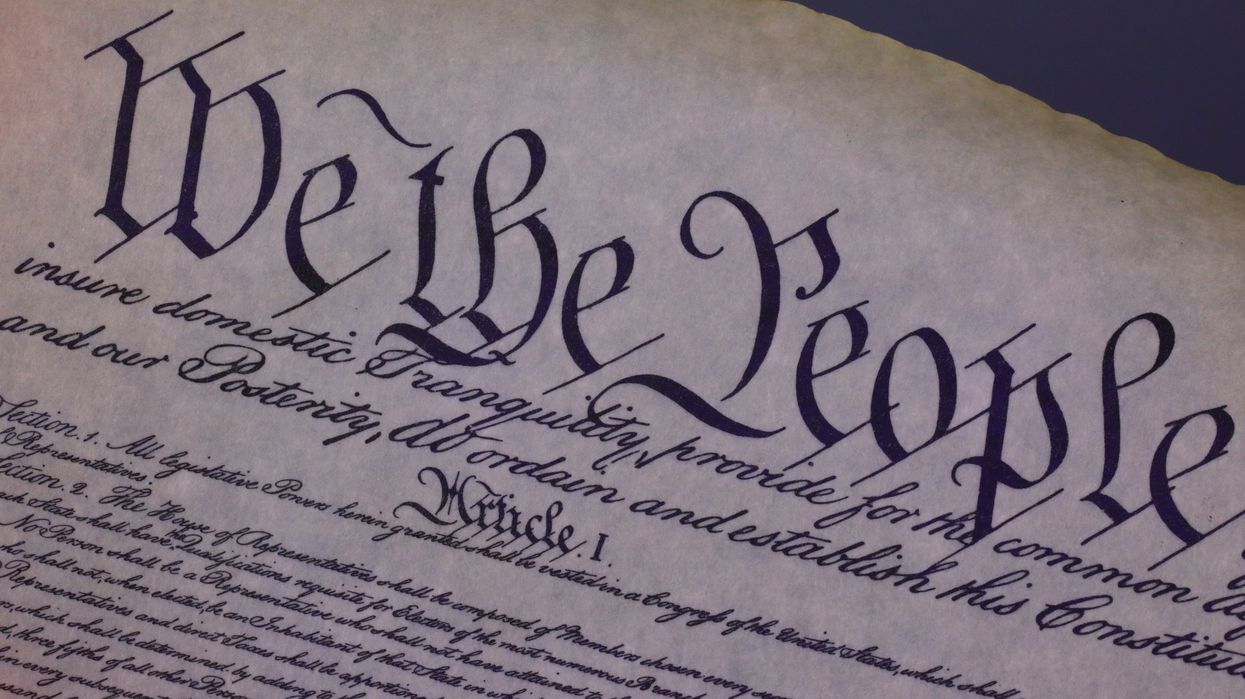Breslin is the Joseph C. Palamountain Jr. Chair of Political Science at Skidmore College and author of “A Constitution for the Living: Imagining How Five Generations of Americans Would Rewrite the Nation’s Fundamental Law.”
This is the latest in “ A Republic, if we can keep it,” a series to assist American citizens on the bumpy road ahead this election year. By highlighting components, principles and stories of the Constitution, Breslin hopes to remind us that the American political experiment remains, in the words of Alexander Hamilton, the “most interesting in the world.”
America’s Constitution is always under the microscope, but something different is happening of late: The document’s sanctity is being questioned.
In the pages of The New York Times, Jennifer Szalai recently asked whether the Constitution is “ dangerous.” Erwin Chemerinsky similarly wonders whether the Constitution is actually a threat to the United States. Ryan Doerfler and Samuel Moyn question whether the “broken” Constitution should even be reclaimed. These questions would scarcely be uttered a generation ago. Today, they’re typical.
As disturbing as alarm over America’s holy charter may be, what is exciting is the way in which critics are responding. Constitutional skeptics have begun to take matters into their own hands and have offered their own versions of a 21st century charter. Leading writers and legal scholars were recently asked to imagine the next constitutional amendment. Before that, Democracy: A Journal of Ideas gathered a bunch of academics to draft a more progressive Constitution for our times, while the National Constitution Center did the same thing with separate teams of liberals, conservatives and libertarians. Hashtags for imaginary draft constitutions are trending.
Those interesting and laudable efforts are the very definition of creativity. Fictional Framers are being asked to create new constitutions for the 21st century, ones that respond to the hyper-polarization of the moment. The drafters of these invented texts are no doubt influenced by the Trump presidency, the “woke” culture, political tribalism, the pandemic, regional distinctions, and on and on. Unsurprisingly, the progressive drafters emphasize rights, while the conservatives focus on the side of federalism and state power. The libertarians, in contrast, try to reduce government’s imprint while championing individual freedom. In the end, the dialogue is both fascinating and enlightening.
It is also distinctly American.
The United States should be proud of its tradition as a constitutional innovator. Political entrepreneurs were born alongside the new nation. John Dickinson, the primary author of the Articles of Confederation, was a dreamer. So was James Madison, and James Wilson, and Gouverneur Morris, and Alexander Hamilton, and all their colleagues who huddled under a hot Philadelphia sun in 1787 to craft a fresh legal charter. Similarly, state constitutional drafters number in the thousands. State leaders have assembled more than 160 times in American history to rewrite their fundamental documents.
These individuals shared an admirable audaciousness. What they also shared was a fervent commitment to see the constitution-making project through. Each was able to translate their vision for a “more perfect union” into an actual, tangible and eventually ratified constitution. They were critics of the political order they saw outside their windows, and they did something about it.
There are similar constitutional dreamers among us today. Hundreds of them. And yet there is little appetite to take their promising ideas and turn them into a new Constitution. The question is why. I would point to at least six different reasons.
- The fear of a runaway convention: There is concern that every clause, safeguard and protection in the Constitution would be fair game for revision.
- The polarization of America: There is concern that liberals and conservatives could never agree on any reforms to the Constitution.
- The challenge of representation: How do we decide who should be at the drafting convention and who should not?
- America is not really in crisis: Constitutions are generally born out of crises (civil wars, coups, economic disasters, etc.). We are experiencing political malaise right now, but not a genuine crisis.
- The sacred Constitution: For millions of Americans, the Constitution is still sacred. Flawed? Sure. But not irredeemable.
There are more reasons, of course. But these are the main sticking points, and they appear to be intractable. Calls for a constitutional convention — a return to Philadelphia of sorts — pop up fairly often. We should welcome them. Conversation about political improvement begets further conversation. Indeed, it is a demonstration of the strength of our constitutional republic that Americans are encouraged to interrogate the nation’s first principles.
Attempts to rewrite the Constitution are inevitably speculative — hypothetical, academic, abstract — mostly because few believe we’ll soon invoke an Article V constitutional convention. That should not diminish the importance of these imaginary efforts, however, or of the more conventional creative approaches to thinking about our current political and social problems. The U.S. Constitution is the most innovative political invention in the post-Enlightenment age. The way we talk about it should be equally creative.




















Trump & Hegseth gave Mark Kelly a huge 2028 gift